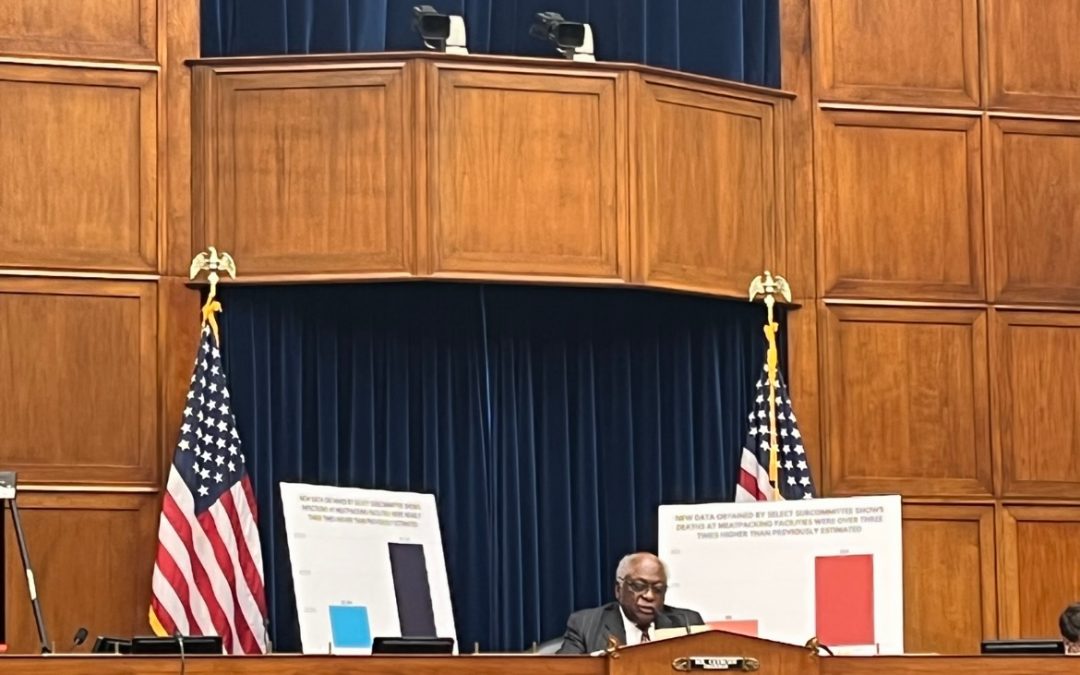WASHINGTON — High coronavirus infection and death rates among workers in the U.S. meatpacking industry went unreported because of a “political decision” to not track cases, according to the report released Wednesday of an investigation by the House Select Subcommittee on the Coronavirus Crisis.
The Occupational Safety and Health Administration did not require meatpacking companies to install safety standards to protect workers during the pandemic, the Select Subcommittee found. OSHA is the agency responsible for ensuring worker safety, but scaled back investigations in 2020, according to the subcommittee report.
OSHA “totally abandoned” workers, Debbie Berkowitz, former OSHA chief of staff, said at a subcommittee hearing Wednesday. The Centers for Disease Prevention and Control recommended businesses enforce social distancing guidelines, but OSHA did not press meatpacking companies to comply so the coronavirus “spread like wildfire,” she said.
The subcommittee did not call OSHA officials to testify.
Coronavirus cases among meatpackers were three times higher than earlier estimates, according to the report, and the virus disproportionately hit workers of color. Last spring, 87% of infected meatpackers were racial or ethnic minorities, the CDC found.
The meatpacking industry is made up largely of immigrant and refugee workers, said Berkowitz, and workers are often afraid to speak out against poor working conditions, fearing punishment from their supervisors.
Workers during the pandemic continued to work in close proximity to each other, said American Civil Liberties Union of Nebraska Interim Director Rose Godinez. Godinez is the daughter of two meatpackers, both of whom retired before the pandemic.
More than half of Nebraska’s meatpackers are immigrant workers, she said, putting immigrant families and minority communities at higher risk. Last summer, Hispanics accounted for 60% of Nebraska’s coronavirus cases, she said, but the Hispanic community is only 11% of the state’s population.
Godinez asked subcommittee members to demand OSHA respond to workers’ complaints. She also urged members to support comprehensive immigration reform to protect meatpackers who are not U.S. citizens and fear employer retaliation.
Meatpacking companies and the Trump administration “caused enormous pain” to meatpackers and their families, said Select Subcommittee Chair Jim Clyburn.
In an interview before the hearing, Berkowitz said she expects the Biden administration to issue the first protections for meatpacking workers next week by requiring vaccines.


